In today’s fast-paced modern life, people are increasingly seeking peaceful spaces close to nature to relax and rejuvenate. Agri-homestay tourism has emerged as a natural trend, meeting this need and offering unique and meaningful experiences for travelers. More than just a vacation, this model opens up opportunities to discover local culture, participate in agricultural activities, and enjoy fresh local cuisine, contributing to the promotion of sustainable rural tourism.
What is Agri-Homestay?
Agri-homestay is a harmonious combination of cozy homestay accommodation and unique agricultural experiences. Unlike traditional homestays that focus solely on lodging and exploring the surrounding scenery, agri-homestays immerse visitors in the daily life of local people, especially in agricultural activities. This model also differs from farm stays, which are usually larger in scale and focus on agricultural production combined with tourism, while agri-homestays emphasize close interaction between guests and hosts, creating a warm and friendly family atmosphere.
At agri-homestays, guests not only enjoy traditional accommodation and local cuisine but also directly participate in farm work, from planting vegetables, rice cultivation, and caring for fruit trees to raising livestock and poultry. This is a great opportunity for visitors, especially city children, to better understand agricultural production processes, appreciate the value of labor, and connect with nature.

Lao Cai – An Ideal Destination for Agri-Homestay Tourism
Lao Cai, with its majestic natural beauty and diverse culture, is becoming an attractive destination for domestic and international tourists. Not only famous for misty Sapa or vibrant Bac Ha, Lao Cai also has great potential for developing agri-homestay tourism. With a mild climate and fertile land, Lao Cai is home to many ethnic minorities with unique agricultural cultures, creating a special attraction for this type of tourism.
A prime example of the development of agri-homestay tourism in Lao Cai is O’Chau homestay in Thao Hong Den village, Muong Hoa commune, Sapa town. This homestay model quickly attracts visitors, especially families with young children and students, thanks to the harmonious combination of cozy accommodation and a unique petting zoo experience.
Mr. Pham Van Truong, the owner of O’Chau homestay, cleverly utilized a 4-hectare area to design a diverse garden, not only providing fresh vegetables for the homestay but also creating an interesting experience space for visitors. In addition to traditional-style houses with a capacity of up to 200 guests, O’Chau homestay also impresses with a garden growing all kinds of vegetables and fruit trees, and an area for raising many friendly animals such as goats, sheep, rabbits, birds, and mice.
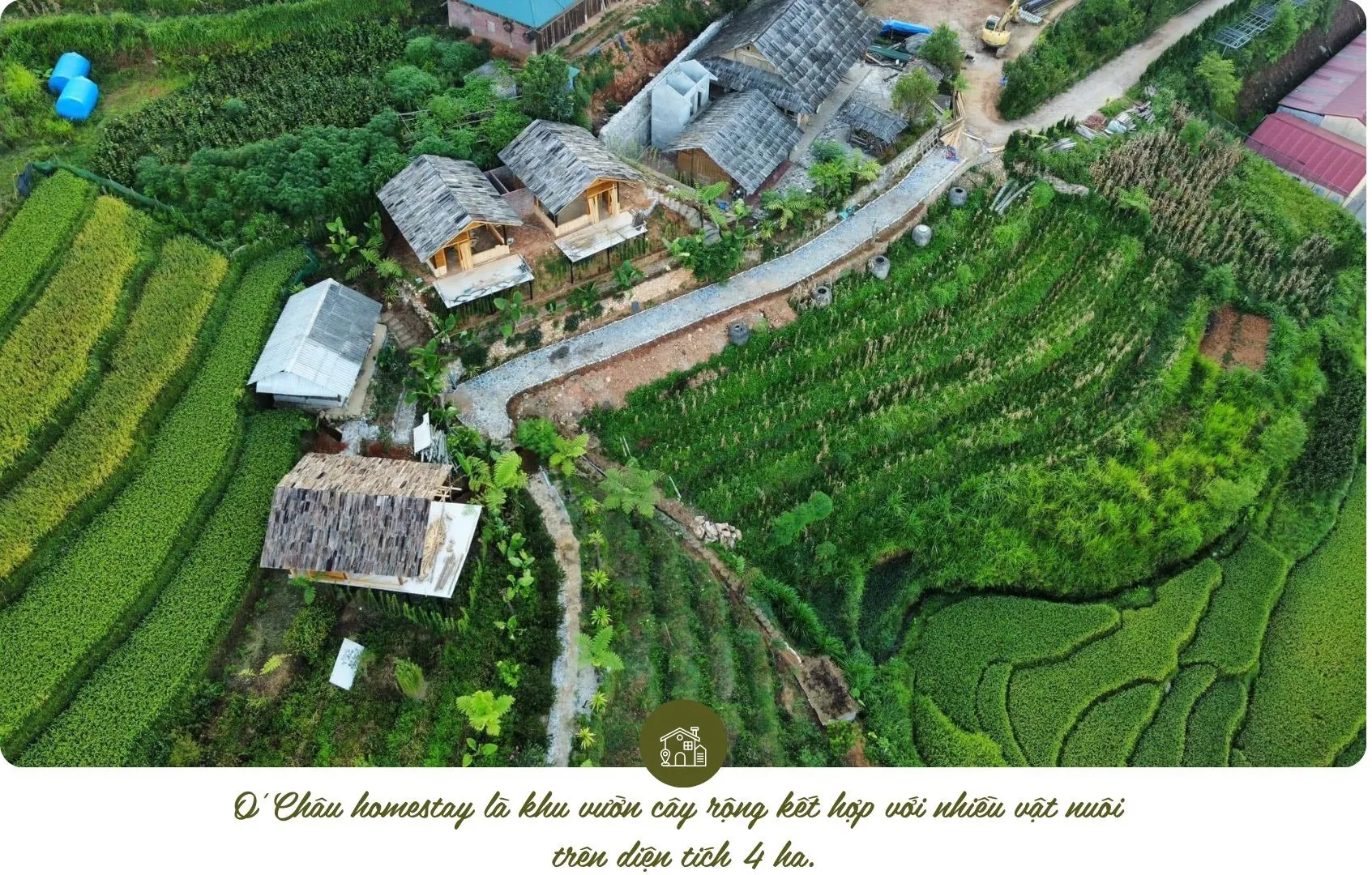
Ms. Nguyen Huyen Trang, a tourist from Hanoi, shared: “My family really enjoyed the small zoo at O’Chau homestay. My children were very excited to see, touch, and feed the animals. The green space and fresh air here gave my family a memorable vacation.”
O’Chau homestay is not only a place to relax but also an educational destination, especially for children. Children have the opportunity to learn about the animal and plant world, learn how to care for plants and animals, and appreciate agricultural products more. In the vegetable season, visitors can also participate in planting and harvesting vegetables, experiencing the life of a real farmer.
Another model that is also well-known to many tourists is the farm stay of Mr. San Seo Lenh in Lung Phinh commune, Bac Ha district. With an area of 5 hectares, Mr. Lenh’s farm stay has a strong local cultural identity with spacious stilt houses, abundant fruit gardens, and an area for raising livestock and poultry. Visitors here not only immerse themselves in nature and enjoy local cuisine but also have the opportunity to experience agricultural activities, camping, and picnics.
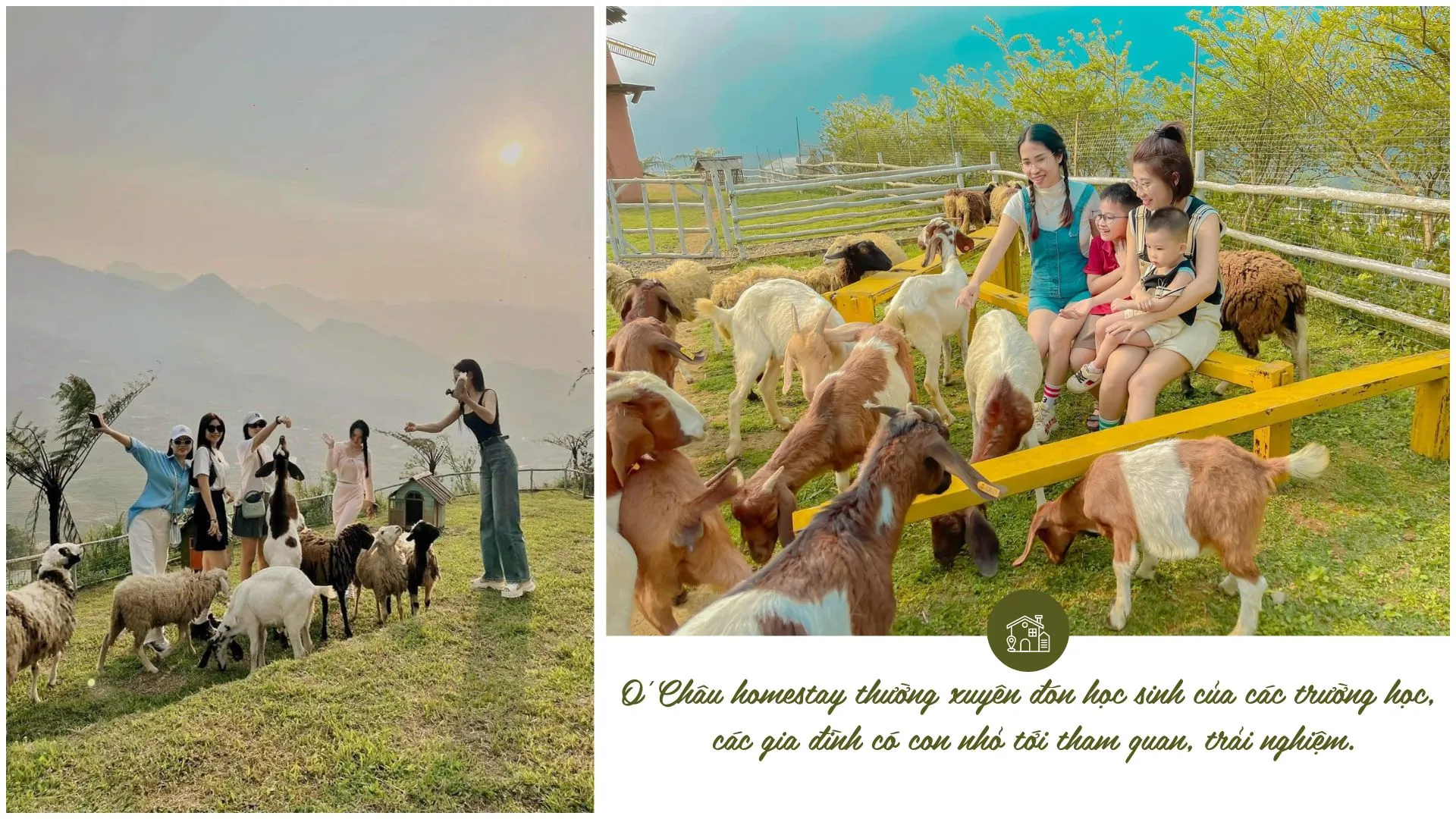
Unique Experiences at Agri-Homestays
Agri-homestay tourism offers diverse and rich experiences, meeting the needs of many types of travelers.
For families with young children: This is a great opportunity for children to get away from phone and computer screens, connect with nature, and learn about the world around them. Children can participate in activities such as:
- Planting trees and watering vegetables: Directly sowing seeds, caring for plants, understanding the process of plant growth and development.
- Feeding animals: Interacting with friendly animals, learning how to care for and love animals.
- Harvesting agricultural products: Participating in harvesting vegetables and ripe fruits, experiencing the joy of labor and enjoying their own achievements.
For groups of young people and seniors: Agri-homestays are ideal spaces to relax, unwind, and find balance in life. Experiential activities may include:
- Exploring gardens and farms: Walking in green spaces, learning about different types of plants, animals, and agricultural production processes.
- Participating in local cooking classes: Learning how to cook specialties from fresh ingredients harvested by themselves.
- Cultural exchange with local people: Learning about customs, cultural activities, and the life of indigenous people.
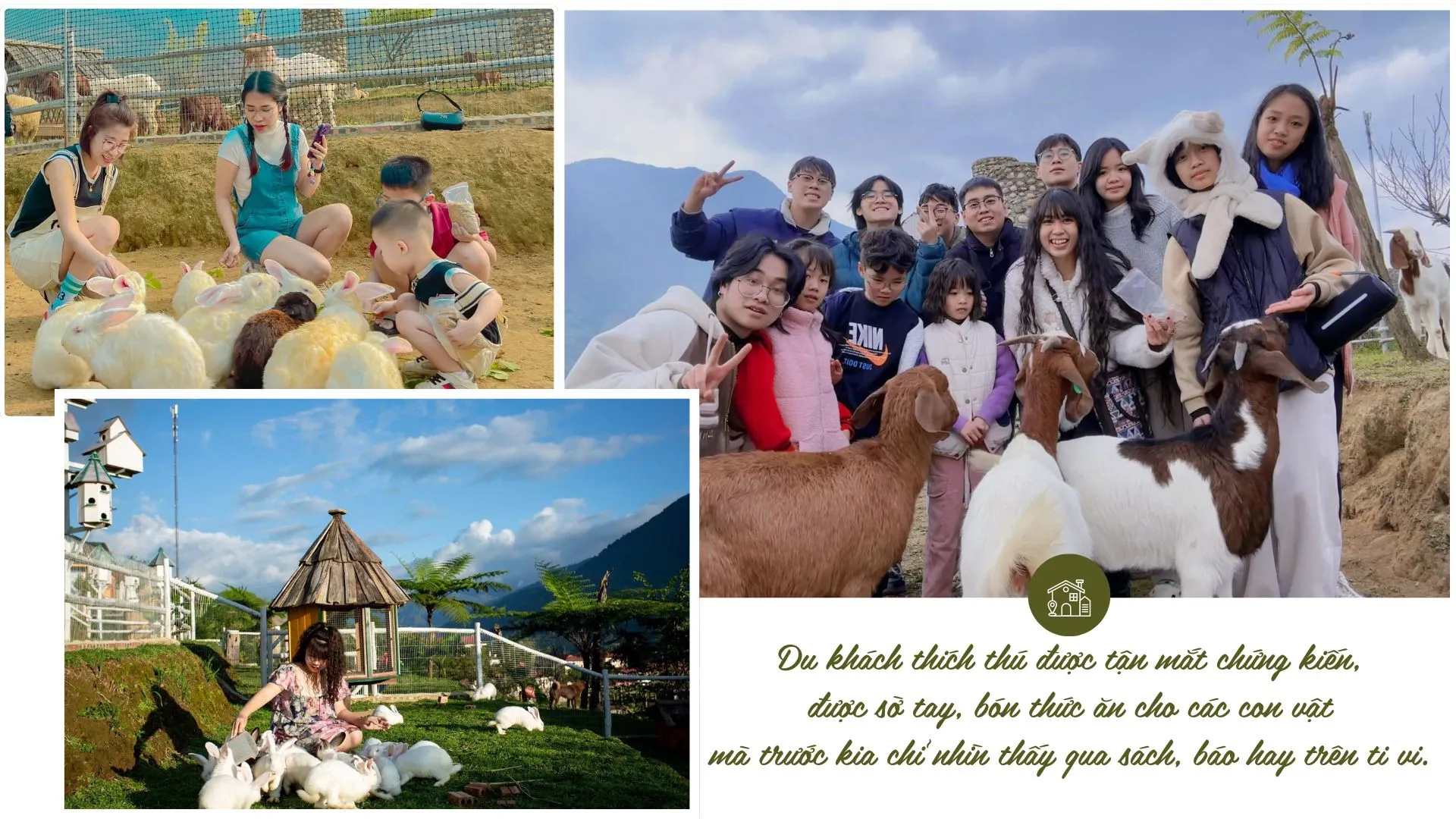
Economic and Environmental Benefits of the Model
The agri-homestay tourism model not only brings benefits to tourists but also makes positive contributions to economic development and environmental protection in the locality.
Economically:
- Increase income for local people: This model helps rural people take advantage of land, labor, and culture to create a stable income from tourism, in addition to income from traditional agriculture.
- Diversify tourism products: Agri-homestays enrich tourism types in the locality, attracting different types of tourists, extending stay times, and increasing tourism spending.
- Develop rural economies: This model contributes to creating jobs, improving the quality of life for rural people, and reducing migration to cities.
Environmentally:
- Develop sustainable agriculture: Agri-homestays encourage organic and environmentally friendly farming methods, minimizing the use of harmful chemicals, and protecting soil and water resources.
- Preserve natural landscapes: This model contributes to preserving green countryside areas, rice fields, and gardens, creating attractive and nature-friendly tourist spaces.
- Raise environmental awareness: Tourists participating in agricultural activities will become more aware of environmental protection and appreciate natural and cultural values.
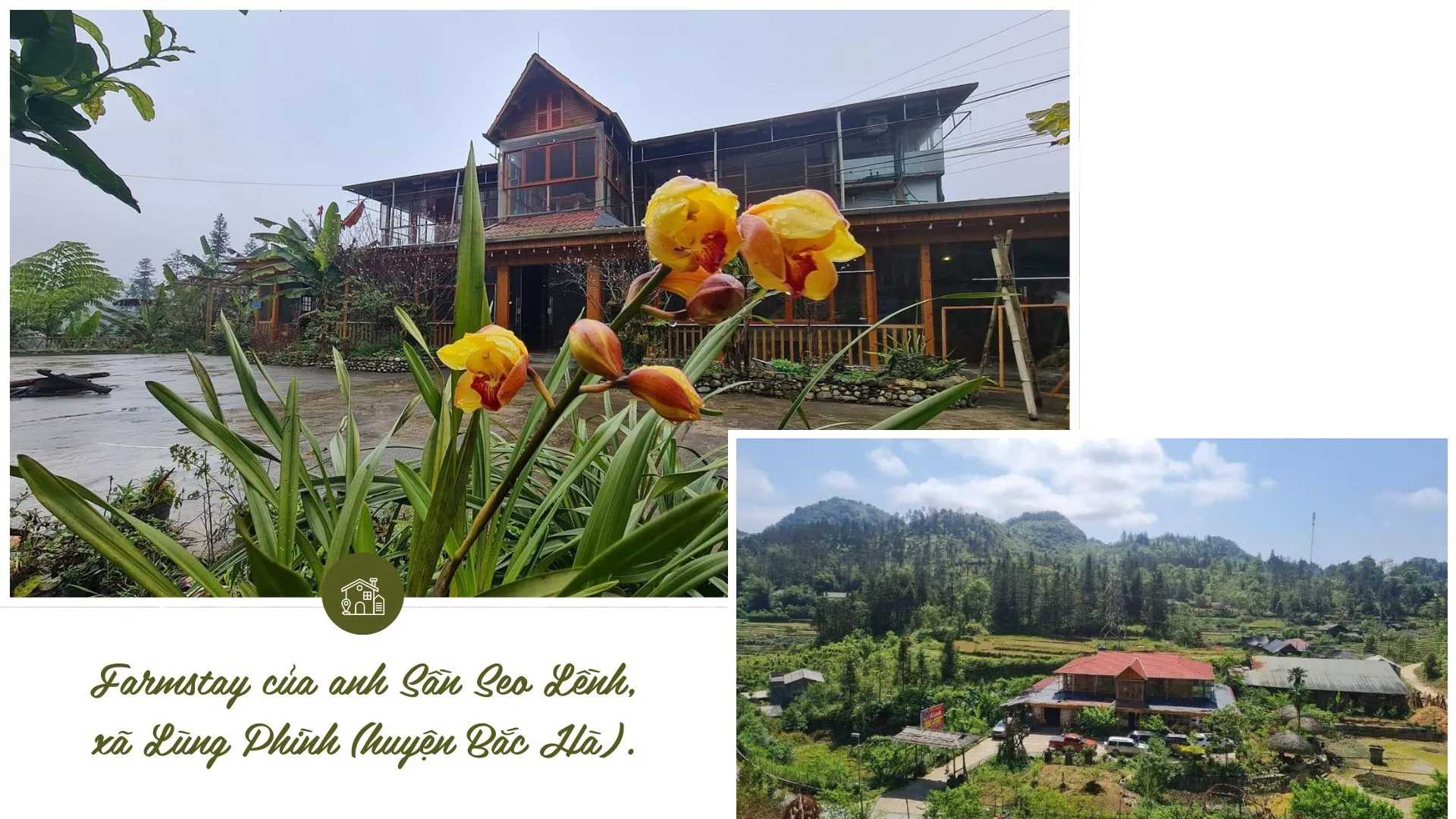
Tips for Choosing a Quality Agri-Homestay
To have a memorable agri-homestay tourism experience, tourists should note some criteria when choosing a homestay:
- Location: Choose homestays in rural areas with beautiful scenery, fresh air, and convenient transportation.
- Services and amenities: Learn carefully about accommodation services, dining, and agricultural experience activities that the homestay provides.
- Reviews and feedback: Refer to reviews from tourists who have stayed at the homestay to get an objective view.
- Price: Compare prices between different homestays and choose a homestay that suits your budget.
- Book in advance: Especially during peak tourist season, book in advance to ensure accommodation and get the best price.
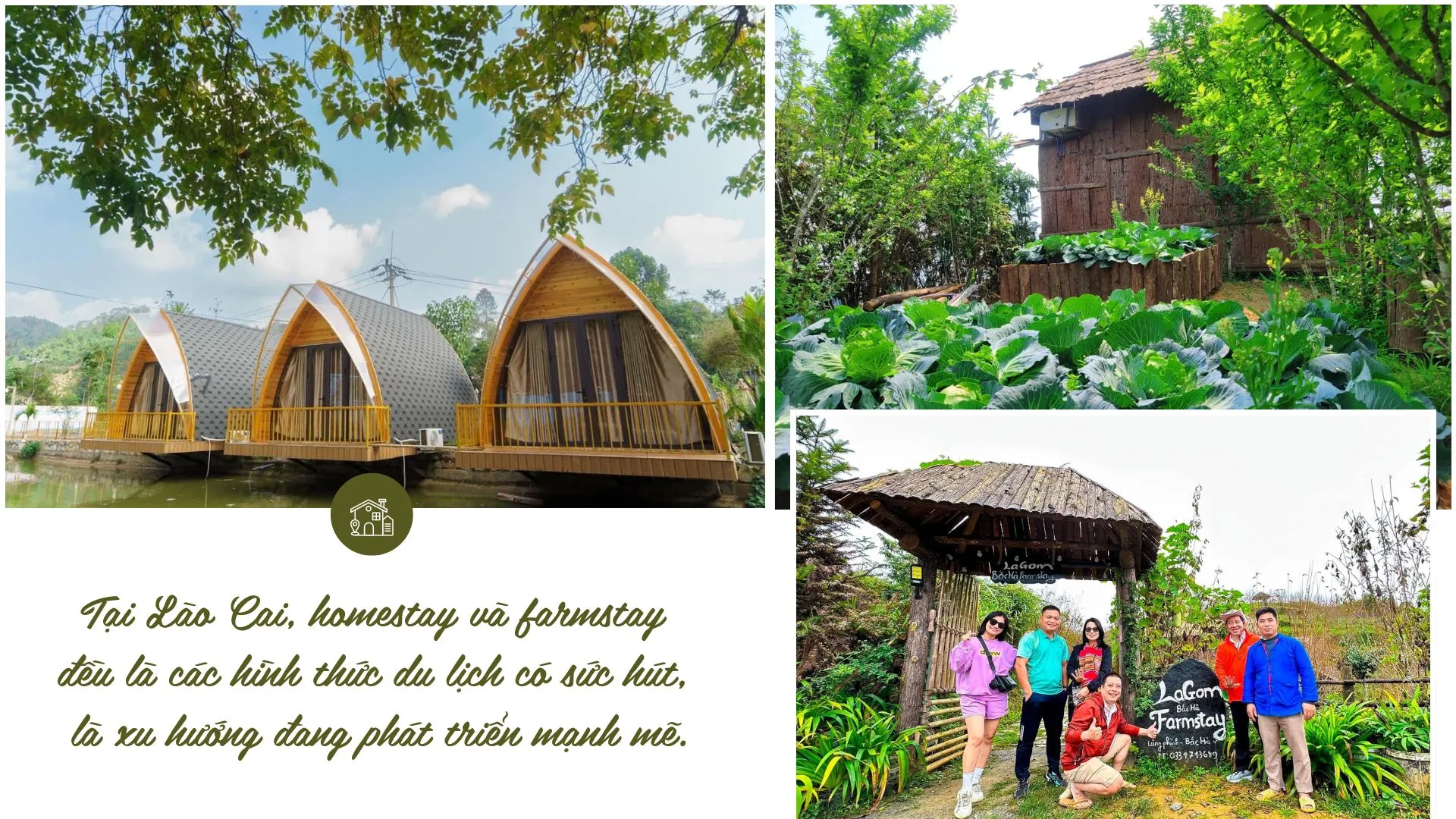
Conclusion: A Bright Future for Agri-Homestay Tourism
Agri-homestay tourism is increasingly asserting its position as a sustainable and potential tourism trend. This model not only brings new and unique experiences to tourists but also contributes to promoting rural economic development, preserving local culture, and protecting the environment. With practical benefits, agri-homestay tourism promises to continue to develop strongly and become the top choice for those who love green tourism, want to immerse themselves in nature, and explore traditional cultural values. Come to Lao Cai and experience the excitement of agri-homestay tourism, you will have unforgettable memories and meaningful experiences for your trip.